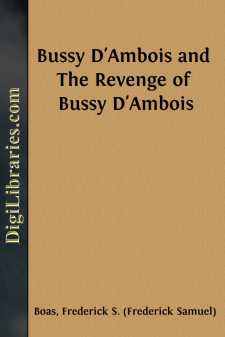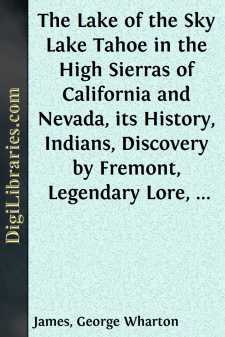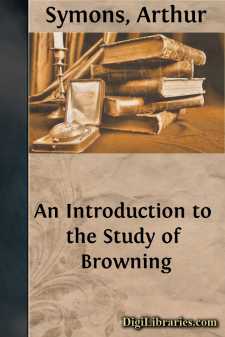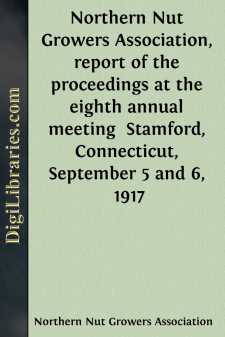Categories
- Antiques & Collectibles 13
- Architecture 36
- Art 48
- Bibles 22
- Biography & Autobiography 813
- Body, Mind & Spirit 142
- Business & Economics 28
- Children's Books 17
- Children's Fiction 14
- Computers 4
- Cooking 94
- Crafts & Hobbies 4
- Drama 346
- Education 46
- Family & Relationships 57
- Fiction 11829
- Games 19
- Gardening 17
- Health & Fitness 34
- History 1377
- House & Home 1
- Humor 147
- Juvenile Fiction 1873
- Juvenile Nonfiction 202
- Language Arts & Disciplines 88
- Law 16
- Literary Collections 686
- Literary Criticism 179
- Mathematics 13
- Medical 41
- Music 40
- Nature 179
- Non-Classifiable 1768
- Performing Arts 7
- Periodicals 1453
- Philosophy 64
- Photography 2
- Poetry 896
- Political Science 203
- Psychology 42
- Reference 154
- Religion 513
- Science 126
- Self-Help 84
- Social Science 81
- Sports & Recreation 34
- Study Aids 3
- Technology & Engineering 59
- Transportation 23
- Travel 463
- True Crime 29
Sort by:
I The freakish little leader of the orchestra, newly imported from Sicily to New York, tossed his conductor's wand excitedly through the air, drowning with musical thunders the hum of conversation and the clatter of plates. Yet neither his apish demeanour nor the deafening noises that responded to every movement of his agile body detracted attention from the figure of Reginald Clarke and the young...
more...
George Chapman was probably born in the year after Elizabeth's accession. Anthony Wood gives 1557 as the date, but the inscription on his portrait, prefixed to the edition of The Whole Works of Homer in 1616, points to 1559. He was a native of Hitchin in Hertfordshire, as we learn from an allusion in his poem Euthymiæ Raptus or The Teares of Peace, and from W. Browne's reference to him in...
more...
INTRODUCTION California is proving itself more and more the wonderland of the United States. Its hosts of annual visitors are increasing with marvelous rapidity; its population is growing by accretions from the other states faster than any other section in the civilized world. The reasons are not far to seek. They may be summarized in five words, viz., climate, topography, healthfulness, productiveness...
more...
by:
Laura Lee Hope
CHAPTER I THE RUNAWAYS "Will Snap pull us, do you think, Freddie?" asked little Flossie Bobbsey, as she anxiously looked at her small brother, who was fastening a big, shaggy dog to his sled by means of a home-made harness. "Do you think he'll give us a good ride?" "Sure he will, Flossie," answered Freddie with an air of wisdom. "I explained it all to him, and I've...
more...
by:
Robert Shea
"Our people will be arriving to visit us today," the robot said. "Shut up!" snapped Rod Rankin. He jumped, wiry and quick, out of the chair on his verandah and stared at a cloud of dust in the distance. "Our people—" the ten-foot, cylinder-bodied robot grated, when Rod Rankin interrupted him. "I don't care about your fool people," said Rankin. He squinted at the...
more...
EXPLANATION The principal abbreviations used in these pages are: b. standing for born.m. standing for married.d. standing for died.y. standing for young. For convenience and distinction, as in all genealogical works, each name is given a number separately. Without this it would be difficult to tell which Joshua Stephens is meant, for there are many of that name, as also others. The numbers are also...
more...
by:
Arthur Symons
A BIBLIOGRAPHY OF ROBERT BROWNING The following list of the published writings of Robert Browning, in the order of their publication, has been compiled mainly from Dr. Furnivall's very complete and serviceable Browning Bibliography, contained in the first part of the Browning Society's Papers (pp. 21-71). Volumes of "Selections" are not noticed in this list: there have been many in...
more...
MEMBERS OF THE NORTHERN NUT GROWERS' ASSOCIATIONAlabamaBaker, Samuel C., CentervilleArkansas*Drake, Prof. N. F., University of Arkansas, FayettevilleCaliforniaDawson, L. H., LlanoKelley, M. C., San DimasTucker, T. C., Manager California Almond Growers Exchange, 311California St., San FranciscoCanadaCorsan, G. H., University of Toronto, Athletic Association, TorontoSager, Dr. D. S.,...
more...
by:
Montague Glass
POTASH AND PERLMUTTER DISCUSS THE CZAR BUSINESS Like the human-hair business and the green-goods business it is not what it used to be. "Yes, Abe," Morris Perlmutter said to his partner, Abe Potash, as they sat in their office one morning in September, "the English language is practically a brand-new article since the time when I used to went to night school. In them days when a feller says...
more...
by:
Kelly Freas
It seems unnecessary to say that my story began a long time ago, but I do not intend to be subtle. I am not clever and my lying is unpolished, almost amateurish. So I certainly could not be subtle, which requires both cleverness and an ability to tell the truth and a lie in the same breath. Let us turn back the clock a few ages. I was lying in the sun thinking of love. I understand that you human...
more...











